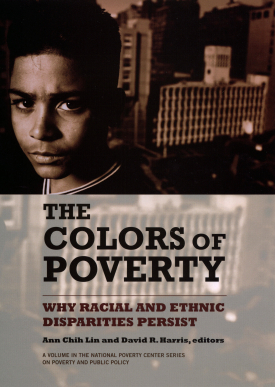
Making Americans Healthier
About This Book
The United States spends billions of dollars annually on social and economic policies aimed at improving the lives of its citizens, but the health consequences associated with these policies are rarely considered. In Making Americans Healthier, a group of multidisciplinary experts shows how social and economic policies seemingly unrelated to medical well-being have dramatic consequences for the health of the American people.
Most previous research concerning problems with health and healthcare in the United States has focused narrowly on issues of medical care and insurance coverage, but Making Americans Healthier demonstrates the important health consequences that policymakers overlook in traditional cost-benefit evaluations of social policy. The contributors examine six critical policy areas: civil rights, education, income support, employment, welfare, and neighborhood and housing. Among the important findings in this book, David Cutler and Adriana Lleras-Muney document the robust relationship between educational attainment and health, and estimate that the health benefits of education may exceed even the well-documented financial returns of education. Pamela Herd, James House, and Robert Schoeni discover notable health benefits associated with the Supplemental Security Income Program, which provides financial support for elderly and disabled Americans. George Kaplan, Nalini Ranjit, and Sarah Burgard document a large and unanticipated improvement in the health of African-American women following the enactment of civil rights legislation in the 1960s.
Making Americans Healthier presents ground-breaking evidence that the health impact of many social policies is substantial. The important findings in this book pave the way for promising new avenues for intervention and convincingly demonstrate that ultimately social and economic policy is health policy.
ROBERT F. SCHOENI is professor of public policy and economics, the University of Michigan.
JAMES S. HOUSE is Angus Campbell Collegiate Professor of Sociology and Survey Research, the University of Michigan.
GEORGE A. KAPLAN is the Thomas Francis Collegiate Professor of Public Health, the University of Michigan.
HAROLD POLLACK is associate professor of social service administration, University of Chicago.
CONTRIBUTORS: Marianne P. Bitler, Jeanne Brooks-Gunn, Sarah A. Burgard, Janet Currie, David M. Cutler, Rebecca C. Fauth, Irv Garfinkel. Ben B. Hansen, Pamela Herd, Hilary Hoynes, Daniel Keating, Jean Knab, Adriana Lleras-Muney, Sara McLanahan, Jeffrey D. Morenoff, Enrico Moretti, Theresa L. Osypuk, Richard H. Price, Nalini Ranjit, Ana V. Diez Roux, Christopher J. Ruhm, Sharon Z. Simonton.
A Volume in the National Poverty Center Series on Poverty and Public Policy

